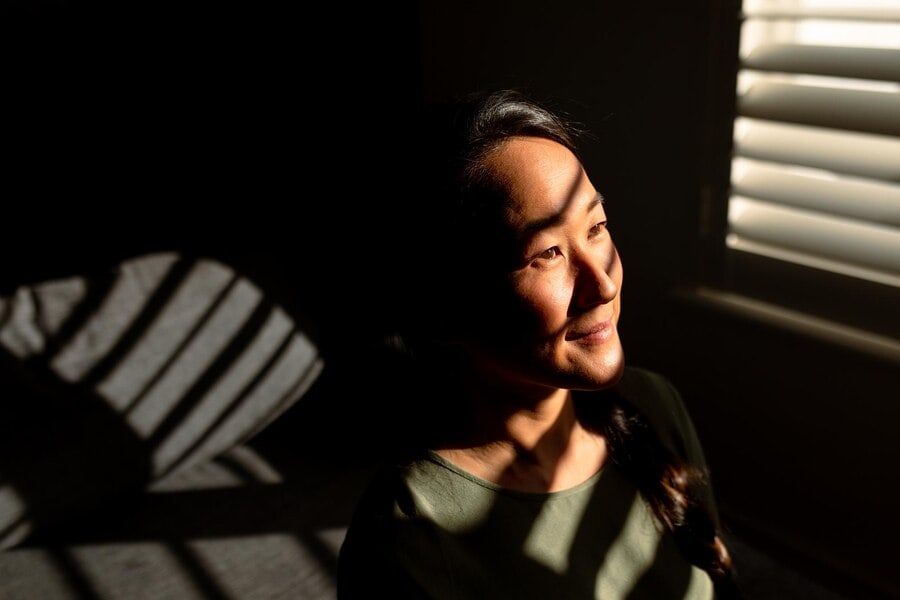Nearly half of LGBTQIA+ youth have considered suicide. This alarming statistic highlights the critical need for mental health support tailored to the unique challenges faced by this community. In the vibrant city of Asheville, North Carolina, nestled amidst the beauty of the Blue Ridge Mountains, a growing number of therapists and organizations are dedicated to providing LGBTQIA+ affirming therapy. This article delves into the significance of this specialized approach, explores the specific challenges faced by LGBTQIA+ individuals in Asheville, and provides a comprehensive guide to the resources available to support their mental well-being.
What is LGBTQIA+ Affirming Therapy?
LGBTQIA+ affirming therapy is a form of psychotherapy that cultivates a safe and supportive environment for individuals of all sexual orientations and gender identities. Unlike traditional therapy approaches that may pathologize or attempt to change a person’s identity, affirming therapy acknowledges and celebrates the diversity of human experience. It recognizes that a person’s sexual orientation and gender identity are not choices and cannot be changed.
The term “affirming therapy” has its roots in the term “gay-affirming therapy,” coined by Alan K. Malyon in 1982. This approach recognized the harmful effects of societal stigma and sought to shift the blame for mental health challenges away from LGBTQ+ individuals and onto the systems that impact them. Over time, this approach has evolved to encompass the broader LGBTQIA+ community, acknowledging the unique experiences and challenges faced by individuals with diverse gender identities and expressions.
Affirming therapists understand that LGBTQIA+ individuals may face unique challenges related to:
- Internalized homophobia and transphobia: Societal prejudice can lead to internalized negative beliefs about oneself, impacting self-esteem and mental health. Affirming therapy helps individuals challenge these internalized messages and develop a positive sense of self.
- Trauma and PTSD: LGBTQIA+ individuals may experience higher rates of trauma due to discrimination, violence, and rejection. Affirming therapy provides a safe space to process these experiences and heal.
Why is LGBTQIA+ Affirming Therapy Important?
LGBTQIA+ individuals often experience higher rates of mental health concerns compared to their heterosexual and cisgender peers. This disparity is largely attributed to the minority stress they face, including discrimination, prejudice, and social stigma. These chronic stressors contribute to adverse mental health outcomes, with LGBTQ+ youth being at higher risk for emotional distress, depression, anxiety, and suicidal ideation.
Affirming therapy plays a vital role in:
- Validating and accepting LGBTQIA+ identities: It provides a space where individuals feel safe to be their authentic selves without fear of judgment. This validation helps clients challenge internalized stigma and develop a positive LGBTQIA+ identity.
- Building resilience: It helps individuals develop coping strategies to navigate challenges related to their identity and experiences of discrimination.
- Promoting self-acceptance: It helps individuals challenge internalized negative beliefs and develop a positive sense of self-worth.
- Improving mental health: Studies have shown that affirming therapy can effectively reduce depression, anxiety, and suicidal ideation among LGBTQIA+ individuals.
- Reducing the risk of suicide: Family and community support, including access to affirming therapy, can significantly reduce the risk of suicide among LGBTQIA+ individuals.
Acceptance and Commitment Therapy (ACT)
Acceptance and Commitment Therapy (ACT) is a type of therapy that can be particularly helpful in addressing internalized homophobia. ACT focuses on helping individuals accept their thoughts and feelings without judgment and commit to actions that align with their values. In the context of LGBTQIA+ affirming therapy, ACT can help clients accept their sexual orientation and identity, allowing them to live more authentic and fulfilling lives.
Culturally Competent Services and Access to Resources
Mental health professionals should receive training in LGBTQIA+-affirming care to better serve the unique needs of this community. Affirmative therapy approaches recognize and validate individuals’ identities and experiences, fostering trust and rapport. Expanding access to resources, including teletherapy platforms and digital mental health resources, is also crucial to ensure that LGBTQIA+ individuals can access the support they need, regardless of their location or circumstances.
Challenges Faced by LGBTQIA+ Individuals in Asheville
While Asheville is known for its inclusivity, it is important to acknowledge the specific challenges faced by LGBTQIA+ individuals in this region. The South, in general, has fewer legal protections and more anti-LGBTQ+ policies than other parts of the country. Studies have shown that a significant number of LGBTQ+ people in the South, including Asheville, have experienced discrimination in various areas of life, such as employment and public accommodations.
Furthermore, some individuals have reported experiencing verbal harassment and feeling unsafe in certain situations due to their sexual orientation or gender identity. These experiences highlight the ongoing need for advocacy, education, and support to create a truly inclusive environment for LGBTQIA+ individuals in Asheville.
Choosing an LGBTQIA+ Affirming Therapist
The therapeutic journey is a deeply personal one, and finding a therapist who truly understands your experiences and needs is paramount. For individuals who identify as LGBTQIA+, this means seeking out a therapist who is not only knowledgeable about the unique challenges faced by the community but also actively fosters an environment of acceptance, respect, and validation.
Here’s why this is so crucial:
- Sensitivity to Specific Challenges: LGBTQIA+ individuals may experience discrimination, prejudice, and social stigma, which can significantly impact their mental health and well-being. An affirming therapist recognizes these challenges and provides specialized support tailored to these experiences. This might include addressing issues like coming out, navigating relationships, dealing with internalized homophobia or transphobia, and coping with the effects of discrimination.
- Creating a Safe and Supportive Space: It’s essential for LGBTQIA+ individuals to feel safe, heard, and understood without fear of judgment. An affirming therapist prioritizes creating a therapeutic space where clients can openly explore their identity, sexuality, and gender expression without shame or fear of rejection. This allows for open and honest dialogue, fostering a strong therapeutic alliance built on trust and mutual respect.
- Promoting Self-Acceptance and Empowerment: An LGBTQIA+ affirming therapist helps clients embrace their authentic selves, fostering self-acceptance and empowerment. They can provide guidance and support in navigating societal pressures, developing coping mechanisms for discrimination, and building resilience. By affirming their clients’ identities and experiences, these therapists help them to live more fulfilling and authentic lives.
Ultimately, choosing an LGBTQIA+ affirming therapist is about finding a partner in your journey toward healing and self-discovery. It’s about finding someone who celebrates your identity, understands your struggles, and supports your growth.
Resources and Support Groups in Asheville
Beyond individual therapy, Asheville offers various resources and support groups for LGBTQIA+ individuals:
- Blue Ridge Pride Center: Promotes equality, safety, and quality of life for LGBTQIA+ individuals in Western North Carolina through advocacy, celebration, education, and service.
- Youth OUTRight WNC: Creates a world where all Queer and Trans youth are supported to realize their power and autonomy through self-determination.
- Tranzmission: Provides education, advocacy, and support for non-binary and transgender people in Western North Carolina.
- PFLAG Asheville: Supports families, allies, and people who are LGBTQIA+, providing education and advocacy for full equality.
- The Trevor Project: Offers 24/7 phone and text crisis support for LGBTQ+ children, adolescents, and adults.
- RHA’s Mobile Crisis Management: Provides 24/7 mental health support for children and adults residing in Western North Carolina.
- Flourish Counseling & Wellness: Offers counseling support to children, adults, and adolescents in Asheville and via telehealth anywhere in North Carolina.
Choosing your path
LGBTQIA+ affirming therapy is an invaluable option for individuals seeking support and empowerment on their journey to mental well-being. In Asheville, NC, a growing number of therapists and organizations are dedicated to providing affirming and inclusive care. By connecting with these resources, LGBTQIA+ individuals can find the support they need to navigate challenges, embrace their identities, and live fulfilling lives.
We understand the unique challenges that LGBTQIA+ individuals may face. If you’re in Asheville and struggling with your mental health, please reach out. We’re here to offer a safe and supportive space.














